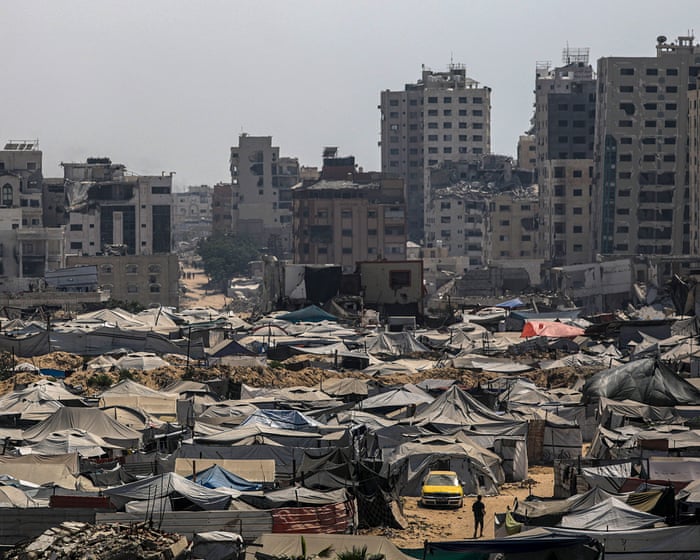The world has watched silently as Israel has killed tens of thousands of Palestinians in Gaza, injured even more, left countless buried under rubble, and destroyed civilian infrastructure. Survivors in Gaza, repeatedly displaced by Israeli forces, now face forced starvation and extreme insecurity. Despite Israel banning international journalists, witnesses and victims continue sharing unbearable images—emaciated children and adults shot while desperately searching for aid. Israeli officials have even proposed building what would amount to concentration camps and deporting surviving Palestinians.
Motivated by our academic and ethical commitment to studying political violence and mass atrocities, including the Nazi genocide of Jewish people, we helped establish the Genocide and Holocaust Studies Crisis Network in April. Within weeks, over 400 scholars from two dozen countries joined, reflecting the urgency of this moment. Today, alongside humanitarian groups, governments, and millions of protesters worldwide, we demand immediate action to stop further atrocities and protect civilians.
Since the October 7 massacre, Israeli officials and their allies have justified genocidal violence by falsely equating Hamas with Nazism, twisting Holocaust memory to justify mass killing rather than prevent it. Meanwhile, many governments continue supporting this genocide—arming Israel, shielding its leaders from accountability, and investing in its war economy. While some official statements have grown critical, tangible action is lacking. International pressure can work, but far more is needed.
The crisis is undeniable. Yet some prominent Holocaust scholars openly deny or even endorse Israel’s atrocities. Institutions dedicated to Holocaust education remain silent or actively justify Israel’s violations of international law. Organizations like Yad Vashem and the U.S. Holocaust Memorial Museum apply a “Palestine exception” to their opposition to genocide. Meanwhile, groups like the Anti-Defamation League weaponize false accusations of antisemitism to silence critics.
We refuse this moral surrender.
Our network exists to challenge this complicity. We stand with Palestinians as they fight for their right to education and cultural heritage amid the destruction of schools, archives, and historical sites. We will push our institutions to reconcile their hollow “never again” rhetoric with their silence on Gaza. As genocidal violence spreads and authoritarianism rises, we will develop new teaching resources to connect past atrocities to today’s crises. We will support students and colleagues risking their safety and careers to speak out.
We reject the false narrative of helplessness and the normalization of Gaza’s suffering. History shows that states can—and must—act to prevent genocide. The time for action is now.We must respond to crimes against humanity. All countries that signed the Convention on the Prevention and Punishment of the Crime of Genocide must uphold their obligations under international law by demanding:
– A permanent ceasefire
– An arms embargo
– The immediate withdrawal of Israeli forces from Gaza
– Unrestricted delivery of humanitarian aid
– Equality and self-determination for Palestinians
As members of the Genocide and Holocaust Studies Crisis Network, we declare: It is not too late to save lives. Stop the genocide now.
— Taner Akçam, Marianne Hirsch, and Michael Rothberg, founding members of the Genocide and Holocaust Studies Crisis Network



